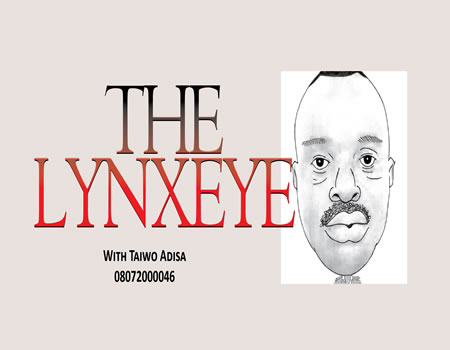As soon as he was sworn in as Minister of Power, Mr. Adebayo Adelabu, the accountant, turned politician from Oyo State, headed for the Power Ministry, and gave a speech to capture his general view of the sector and his readiness to turn things around in the delicate sector. Luckily, he didn’t promise to turn water into wine.
He told stakeholders that he would leverage the God factor, the support of President Bola Tinubu, the National Assembly and the leeway already provided for power sector reforms by the Nigerian Electricity Act 2023, an upgrade on the Power Sector Reforms Act 2005.
He said: “This responsibility weighs heavily upon us, and it is with conviction, divine guidance, and the support of President Tinubu, the National Assembly, government agencies, and Nigerians that I pledge my commitment to achieve success in the power sector,” adding that the “Key to success will be an unwavering dedication to efficiency and collaboration.”
It is instructive that the new Minister is starting on a cautious note. This is because arithmetics and even mathematics of the sector hardly add up, regardless of the formula you apply. The long list of those who have come, seen, and failed to conquer the jinx and the hoodoo that maintain some asphyxiating wrap of service delivery in that sector is quite long. The challenges predate the nation’s colonial history.
This Fourth Republic, we’ve had the late Chief Bola Ige, SAN, Dr. Olusegun Agagu, Senator Lyel Imoke, and lately, Mr. Babatunde Raji Fashola, all of whom approached the task with promising enthusiasm.
Perhaps, former President Muhammadu Buhari thought Fashola was a superman, and he was thus entrusted the reins of Power, Housing and Works Ministries. Many who were optimistic that the Power sector would benefit from Fashola’s campaign trail declaration that “a serious government should fix power in six months” had their lips ajar as the Lagos man got defied by the sector. He left darkness in his wake, with a prolonged list of complaints by stakeholders.
To say that the task before Adelabu is enormous would sound like a broken record. The three key legs in the power sector- Generation, Transmission, and Distribution kept singing discordant tunes; and darkness would persist if that remained. The Minister and (particularly the President) must midwife a solution.
Incumbent Chairman, Senate Committee on Power, Senator Enyinnaya Abaribe, in his first coming as Chairman of the Committee, summarised the scenario by saying “For all have sinned.” He was simply saying that all stakeholders in the sector have got a share of the blame.
Even now, I do not think his analysis has changed. The situation in that sector is getting hazy by the day and only a determination to succeed and break the back of the stubborn darkness would get the nation off the mark. So, for President Tinubu and Minister Adelabu, the point is this: Choose ye today, the path to follow. You either take the narrow and difficult path and achieve results or take the easy path and windowdress the crisis.
My investigations revealed that between the Generation Companies (GENCOS), Transmission Company of Nigeria (TCN), and the Distribution Companies (DICSOs), the issue has been about “appropriate pricing.” The Generation Companies procure gas at international prices and supply the DISCOs through the channels of TCN. The government can not leave the market to forces of demand and supply because electricity is partly a business and a social service. Thus, the creation of agencies like the Nigerian Electricity Bulk Trading (NBET) and the Nigerian Electricity Regulatory Commission (NERC), among others. While NBET collects revenue on behalf of the GENCOS and TCN, the NERC regulates the rates of electricity units in line with the socio-economic variables. But NBET is domiciled in the Ministry of Finance, while its other collaborators are in the Ministry of Power. That creates some incongruencies. So, multi-dimensional problems get underway- as the distribution companies can’t earn the “appropriate price” to stay afloat, while the consumers remain dissatisfied with epileptic service. The Generation companies insist they get paid less than the supplied power, and the TCN is also locked in the limbo.
On the supply side, distribution companies are bedeviled by low collection, energy theft, lack of electricity meters, and estimated billing. An attempt by the World Bank to intervene and procure electricity meters for all consumers has only doubled the confusion. So is another attempt to bring Siemens into the fray. Meter producers in Nigeria headed to court to stall the World Bank intervention because the procurement process left practically nothing for them.
With that, the World Bank would probably suspend its loan and look elsewhere. The TCN would claim that it can transmit up to 7,500 megawatts of electricity and that embedded power is up to 13,000 megawatts, but in reality, it cannot transmit more than 4,000 megawatts. When it does, either the system collapses or the DISCOs reject the power.
If you ask the DISCOs why they can’t upgrade the transformers and supply meters, they will insist that low collection is key. However, the consumers are not motivated to pay because of poor services. Right now, the number of distressed DISCOs is growing with the confirmed list, including Yola, Abuja, Kano, Kaduna, and Ibadan. So, a major source of the crisis is the lack of liquidity in the system.
That has invariably informed the huge subsidy the government currently injects into the sector. Subsidy on electricity is said to currently stand in the region of N800 billion. By the end of the year, it should clock N1.2 trillion, but the government cannot afford to table an increment in electricity tariff before Nigerians in the wake of the fuel subsidy crisis and the attendant nosediving fortunes of the Naira that has fuelled galloping inflation.
Some analysts would say that part of the problem is the sabotaging capacity of generator suppliers. I don’t agree with this. The generator sellers are merely filling a void. When there is public power, they will be forced to redirect their business focus. The fact is that there is politics, there is a lack of patriotism and there is the greed of public officers whose agenda is to choose the easy path; make quick money, and leave the problem for whoever is unfortunate to inherit it.
A claim was recently made that a Minister diverted transformers worth $5 million to some parts of the North East, even when it was clear that the transformers would be more economically viable in Ibadan, Lagos, Benin, or Abuja. He wanted to show his people he was a performing Minister!
Minister Adelabu must tell the president the whole truth. The sector needs liquidity, ahead of the multi-pronged solution, but there must be value for money. He must get the president’s backing to inject huge cash; banish estimated billing and decree meters for every home and business. He must break TCN’s bureaucratic autonomy and that of its sister parastatals, which has stalled initiatives and quick results. Power theft must become a high crime, and when DISCOs get paid, they must inject life into the lower rung of the sector by replacing old transformers and cables. It makes more sense to sell gas to GENCOs at rates lower than international prices because that would have a telling effect on electricity tariffs.





